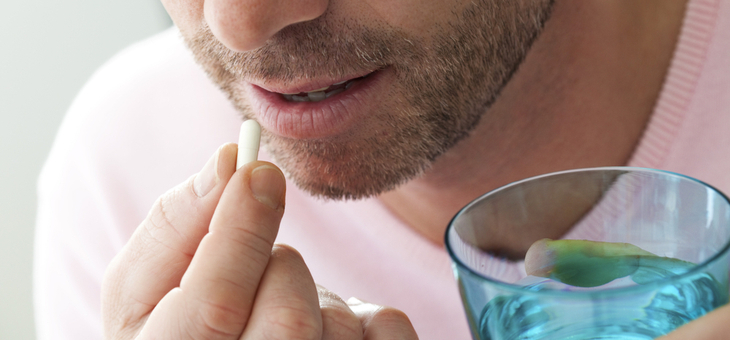Even if you don’t take probiotics yourself, you’ve probably heard of them. There has been a rise in people proclaiming their benefits in the past few years and more and more studies are being done on how they can benefit gut health.
Probiotics have been found to encourage a healthy gut by preventing the growth of harmful organisms, reinforcing the gut barrier and restoring bacteria after disturbances from illness or medications. They may also promote a healthy immune system and support oral, skin and mental health but research in these areas is limited.
Taking probiotics at the right time can help maximise all these benefits, so when should you be taking them? You’ve probably heard that fat-soluble vitamins are absorbed better when taken with food, and magnesium should be taken at night to help with sleep, so where do probiotics fit in?
What are probiotics?
Probiotics are live microorganisms (usually bacteria) that are similar to beneficial microorganisms that live in the human gut and provide a health benefit when taken in the right amount. They are typically used to reduce gastrointestinal symptoms such as gas, bloating, and constipation that are not due to an acute illness.
The most common strains of bacteria used in probiotics are lactobacillus or bifidobacterium.
Lactobacillus colonises primarily in the small intestine, while bifidobacterium colonises primarily in the large intestine also known as the colon. They have both been found to promote a healthy gut.
The bacteria are typically freeze-dried before they are encapsulated; they remain alive but in an inactive state. When you take the supplement, the bacteria warm up in your digestive system and become fully active.
Probiotic supplements typically come as capsules or tablets to swallow, or a powder to sprinkle on food.
When should you take probiotics?
Research shows that the best time to take probiotics is just before a meal or as you begin your meal. This is when the levels of acidity in your stomach are lower, meaning more bacteria can survive and pass through to colonise the gut. After a large meal, your body produces a large quantity of stomach acid in order to digest the food you just ate, so avoid taking probiotics at this time as fewer bacteria will make it to the gut. The main goal is to get the probiotic into the small or large intestine before they are killed by stomach acid.
“Probiotics have to survive your gut acids in order to establish themselves in the GI tract,” says gastroenterologist and internist Dr Niket Sonpal. “If the capsule or encasement doesn’t offer proper protection from stomach acids, it may not be effective.”
If you purchase a probiotic that is enteric-coated or uses delayed-release capsules, the exact timing is less important as the cases are designed to help the bacteria survive the stomach acid.
If you’re on antibiotics, don’t make the mistake of taking your antibiotics and probiotics at the same time. You should wait at least two hours after taking your antibiotic to ingest the probiotic, otherwise, you risk having the ‘good bacteria’ killed off by the antibiotic treatment.
So, it doesn’t really matter whether you take them in the morning, afternoon or evening, just plan your dose around your mealtimes to get the maximum benefits
Possible side-effects
Most people tolerate probiotics pretty well but they can cause temporary gas and bloating in some. Probiotics should be used cautiously in patients who are critically ill or severely immunocompromised or those with central venous catheters as systemic infections can occur.
The best food sources of probiotics
Supplements aren’t the only way to get a daily dose of probiotics. There are many foods loaded with good bacteria. Some good sources are:
- yogurt, especially plain Greek yogurt
- kefir, a tangy dairy drink
- kimchi
- kombucha
- sauerkraut
- tempeh.
Trying to get the right number of probiotics from food alone can be difficult though, the specific dose is not often shown on the food packaging and can vary widely across brands. If you’re not a fan of fermented foods or you want to get a more consistent dose, probiotic supplements may be beneficial.
Find a quality probiotic
Research shows that 100 million to 1 billion probiotic microorganisms must reach your intestine for you to experience health benefits, so you want to find a quality product that gives the bacteria the best chance of surviving until they reach the intestine. Probiotic cells can die while they’re sitting on the shelf, so look for products that guarantee at least one billion live cultures (often listed as colony-forming units or CFUs) on the label.
Check the label to see how to store your probiotics; some can be kept at room temperature while others must be refrigerated. Ensure you use them before the expiry date.
Keep in mind that there is a lot more research to be done to substantiate and strengthen the correlations of probiotics and all of their benefits. Fortunately, the excitement surrounding probiotics has fostered a rich environment for scientific discovery and increased the number of probiotic-related tests, trials and publications.
Do you take a probiotic supplement? If so, what time of day do you take it? Do you eat probiotic-rich food?
If you enjoy our content, don’t keep it to yourself. Share our free eNews with your friends and encourage them to sign up.
Related articles:
https://www.yourlifechoices.com.au/health/wellbeing/our-gut-has-never-been-more-important
https://www.yourlifechoices.com.au/health/wellbeing/health-benefits-of-honey
https://www.yourlifechoices.com.au/health/wellbeing/best-and-worst-supplements

